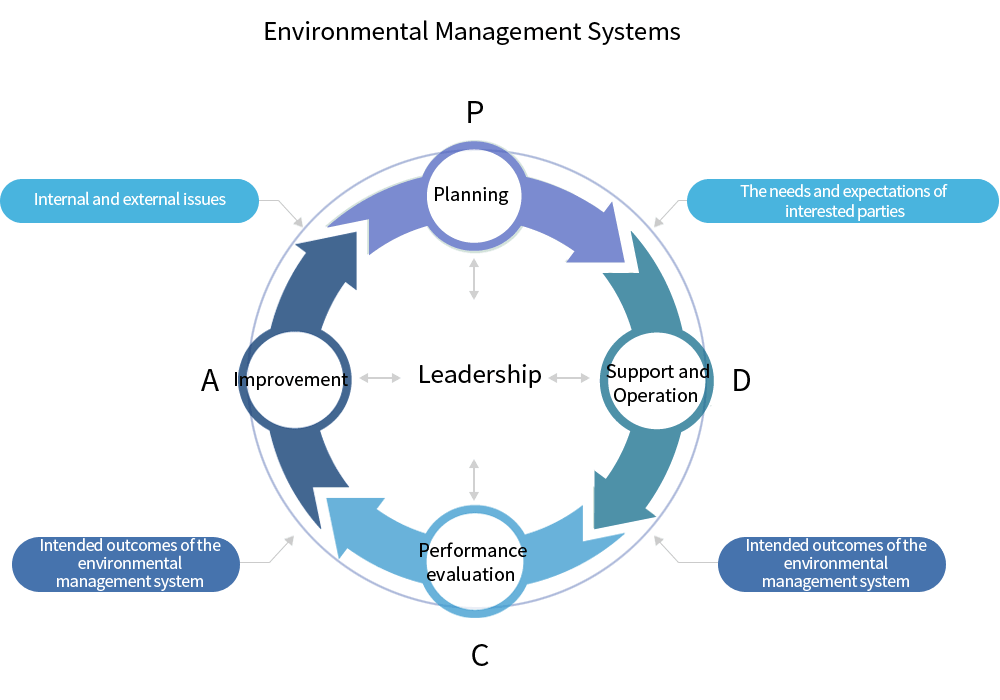ISO 14001 certification system?
ISO 14001 provides objective certification by evaluating the overall environmental management system of business activities, as opposed to the existing international environmental regulations, and evaluates how the company conducts comprehensive environmental management, including environmental policies, implementation and operation, inspection and corrective actions, management reviews, and continuous improvement, beyond simply compliance with the applicable environmental laws or regulations.
Necessity
- Establishment of Environmental Management System in preparation for WTO / GREEN ROUND
- Enhancing competitiveness for the hegemony of environmental technology (overcoming non-tariff barriers)
- Environmental management system certification required for export to developed countries
- Increased pressure from consumers who demand environmental performance and information
- Supplies and Energy Savings
- Trends of strengthening domestic and foreign Environmental Regulations
- Reduce environmental risks
Expectation effect
- Raw materials and energy savings
- Enhancing corporate competitiveness by improving environmental performance and reducing costs
- Establish EMS standards (continued achievement of environmental laws and regulations)
- Enterprise system integration
- Improved quick response capability in case of emergency
- Improve trust with stakeholders (enhancement of environment-friendly corporate image)
- Improving reverse correlation of corporate productivity and environmental burden
Basic model

- Plan : Establish environmental objectives and processes necessary to deliver results in accordance with the organization's environmental policy.
- Do : Implement the processes as planned.
- Check : Monitor and measures processes against the environmental policy, including its commitments, environmental objectives and operating criteria, and reports the results
- Act : Take action to continuously improve
Composition of standard requirements
Certification scope
- 03. Food products, beverages and tabacco
- 05. Leather and leather products
- 06. Leather and leather products
- 07. Pulp, paper and paper products
- 10. Manufacture of coke and refined petroleum products
- 11. Nuclear fuel
- 12. Chemicals, chemical products and fibres
- 13. Pharmaceuticals
- 14. Rubber and plastic products
- 15. Non-metallic mineral products
- 16. Concrete, cement, lime, and plaster, etc.
- 17. Basic metals and fabricated metal products
- 18. Machinery and equipment
- 19. Electrical and optical equipment
- 20. Shipbuilding
- 21. Aerospace
- 22. Other transportequipment
- 23. Manufacturing not elsewhere classified
- 24. Recycling
- 25. Electricity supply
- 26. Gas supply
- 27. Water supply
- 28. Construction
- 29. Wholesale and retail trade; Repair of motor vehicles, motorcycles and personal and household goods
- 30. Hotels and restaurants
- 31. Transport, storage and communication
- 32. Financial intermediation; real estate; renting
- 33. Information technology
- 34. Engineering services
- 35. Other services
- 36. Public administration
- 37. Education
- 39. Other social services





